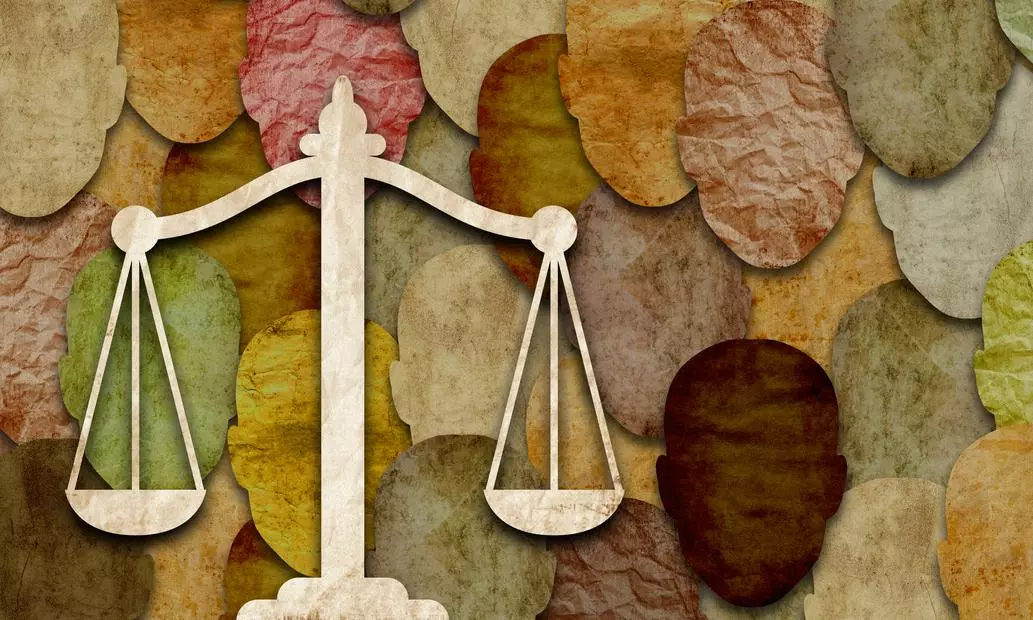
- Home
- India
- World
- Premium
- THE FEDERAL SPECIAL
- Analysis
- States
- Perspective
- Videos
- Sports
- Education
- Entertainment
- Elections
- Features
- Health
- Business
- Series
- In memoriam: Sheikh Mujibur Rahman
- Bishnoi's Men
- NEET TANGLE
- Economy Series
- Earth Day
- Kashmir’s Frozen Turbulence
- India@75
- The legend of Ramjanmabhoomi
- Liberalisation@30
- How to tame a dragon
- Celebrating biodiversity
- Farm Matters
- 50 days of solitude
- Bringing Migrants Home
- Budget 2020
- Jharkhand Votes
- The Federal Investigates
- The Federal Impact
- Vanishing Sand
- Gandhi @ 150
- Andhra Today
- Field report
- Operation Gulmarg
- Pandemic @1 Mn in India
- The Federal Year-End
- The Zero Year
- Science
- Brand studio
- Newsletter
- Elections 2024
- Events
- Home
- IndiaIndia
- World
- Analysis
- StatesStates
- PerspectivePerspective
- VideosVideos
- Sports
- Education
- Entertainment
- ElectionsElections
- Features
- Health
- BusinessBusiness
- Premium
- Loading...
Premium - Events

The BJP-ruled state's Uniform Civil Code incentivises patriarchy, deepens state control, and infringes on individual choice; is this what the nation wants?
For decades, India’s democracy has celebrated multiculturalism. With a new law in Uttarakhand imposing a Uniform Civil Code (UCC), and the possibility of this law being replicated in other BJP-ruled states or into a centrallegislation looming large, India stands at a critical juncture between diversity and uniformity.
Proponents hail UCC as a hope for gender equality and secularism. Critics argue that it does little to address existing disparities while infringing on religious freedom and personal autonomy.
The raging controversy surrounding the UCC necessitates a closer look at its implications for India's pluralistic identity and individual liberties.
Gender biases
In theory, the UCC is a set of common secular laws that will prevail over the personal matters of all citizens, irrespective of their religion. These include marriage, divorce, guardianship, inheritance, adoption, succession, and maintenance.
India has so far followed community-specific personal laws. The overriding narrative in support of the UCC has, thus far, been that it will do away with gender biases in existing religious/personal laws. Studies by Pew Research and other agencies suggest that most Indians support gender equality, indicating a potential groundswell of support for the code's objective.
But experiences from other countries, like France, caution against one sweeping legislation to fix deeply entrenched societal inequalities. Even in societies with religious homogeneity, the success of uniform codes often requires meticulous collaboration between secular and democratic forces.
Nonetheless, contentious issues like abortion and divorce by mutual consent remain contested. Things are challenging for women from minority groups like the indigenous women in Canada, who continue to face severe challenges due to historical and systematic barriers.
Copy-paste rules
With the West providing hardly any model for UCC, all eyes were on India. Therefore, when the Uttarakhand UCC was passed amid chants of “Jai Shri Ram” and “Bharat Mata Ki Jai”, the code’s framers and votaries hailed a victory for the women of India.
The law addresses crucial personal matters like marriage, divorce, adoption and inheritance. This, however, is where the cheer dies down.
Out of the almost 389 sections contained in the three parts of the code dealing with marriage and divorce, succession and live-in relationships, only 14 are new. The bulk of the remaining sections is essentially a work in copy-paste from pre-existing laws, such as the Hindu Marriage Act, Special Marriage Act or the Hindu Succession Act.
Individual liberty
The code’s narrow focus and selective intrusion into private lives raise concerns about individual liberty and choice. Uttarakhand couples, regardless of residency, have to declare a “statement of live-in relationship” to the jurisdictional registrar. It gives the authorities investigation powers to summon such partners and inform the local police.
The proclamation also comes with stringent penalties for non-compliance, including a jail sentence and fines. The law is silent on what happens in cases of harassment of such partners by kin, vigilantes, or self-appointed champions of Indian culture and traditions.
The same UCC that raises the minimum age of marriage to 18 years and 21 years for all women and men respectively in line with the Hindu Marriage Act, 1955 and the Special Marriage Act, 1954, also erodes the autonomy of women (and men).
Keeping aside constitutional rights, two consenting adults will now require both parental consent and the state’s permission if they do not wish to formalise a marriage but simply wish to live together. If these relationships receive approval, they will have to be registered. In the event of non-registration, a fine of Rs 25,000 will be imposed. The amount is high for a country where 10.84 per cent of the rural population is below the poverty line.
Individual choices
These measures will only work to heighten anxieties of partners exercising their freedom of choice. A survey conducted in 2018 involving over 160,000 households indicated that 93 per cent of married individuals reported having an arranged marriage.
Measures like UCC will not advance gender justice but will tighten patriarchal control over individual choices. It will also lead to more “love jihad” propaganda, about which neither the Centre nor the National Investigation Agency (NIA) has come up with a shred of evidence. Does the UCC incentivise the traditional family structure, potentially infringing on individual choice?
These actions also contradict previous court orders about privacy and consensual adult relationships. Relationships resembling marriage are acknowledged by the Domestic Violence Act, which even extends legal protection to children born from such unions.
Therefore, instead of advancing a rights-oriented agenda by extending civil partnerships for even same-sex couples, the new law shows a paternalistic state stance, perpetuating institutionalised patriarchy.
Muslim, tribal women
As for outlawing polygamy, the step is welcome but the bigoted chest-thumping about this ban curbing an injustice to Muslim women is not as it is grossly misleading, though understandable given the political spin-doctoring it stems from.
A study published by the IIPS in 2022 based on data from NHFS shows that polygamy among Muslims is 1.9 per cent, against 1.3 per cent among Hindus and 1.6 per cent among other religions. It further states that incidents of polygamy are highest among members of the Scheduled Tribes (STs), at 2.4 per cent. The STs are, however, exempt from the UCC. So, what is uniform or gender-just about this law?
The haste for uniformity also creates unnecessary complications in what should have been easily achievable within the framework of existing personal laws. Take divorce, for instance. Muslim women could have been given a format for seeking divorce within the community’s personal law; all that was needed was to insert a clause for the right to divorce in their Nikahnammas, or marriage contracts. The UCC, instead, complicates this by making the two contract parties go through court.
Marriage issues
The code allows filing for divorce only one year after a marriage is solemnised or contracted. So, essentially, if a couple knows within the first few days or months of a marriage that their union won’t work, or if a woman faces domestic abuse soon after marriage, proceedings for divorce will still need to wait for the completion of a whole year.
Further, the code doesn’t recognise “irretrievable breakdown of marriages” as a ground for divorce, despite the Supreme Court's recent judgments recognising the same. There is also no deterrent clause against desertion of either party in a marriage, while the code retains a clause for “restitution of conjugal rights”.
The UCC also misses opportunities for true inclusivity by neglecting to address gender disparities in inheritance rights and failing to reform daughters’ rights in the Hindu Undivided Family (HUF). Its gender-biased language excludes transgender individuals, perpetuating uncertainty about their rightful inheritance.
In striving for equality, the code falls short of recognising myriad identities and needs of citizens.
About tribes
The UCC's claim to uniformity crumbles with the glaring exemption of STs. While their distinct customs rightly enjoy constitutional protection, so do the very personal laws this code supersedes. This inconsistency exposes the UCC not as a unifying force but as one of government overreach into the private lives of citizens. It also infringes upon the Fundamental Right to Freedom of Religion as enshrined under Article 25 of the Constitution.
What India, perhaps, needs is to approach civil reform more thoughtfully and comprehensively. If we are to walk down this path, governments must take concrete measures to address existing disparities and uphold the principles of equality, secularism and inclusivity, which are crucial for fostering unity and tolerance in society.
These actions can gradually pave the way for a nationwide UCC that upholds India’s pluralistic identity and charts its path towards a more equitable, inclusive and tolerant society.
(The Federal seeks to present views and opinions from all sides of the spectrum. The information, ideas or opinions in the article are of the authors and do not necessarily reflect the views of The Federal.)



